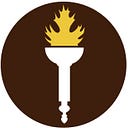CUGS in Entrepreneurship, Innovation, and Technology turns business ideas into real-world solutions

Technological entrepreneurship is a market that is always growing and innovating, whether it’s through computer advances, safety apps, or agricultural projects. Through a Certificate of Undergraduate Study (CUGS) in Entrepreneurship, Innovation and Technology, Rowan students have the unique opportunity to earn a business credential, by only taking a few extra classes.
As part of the CUGS curriculum, students enroll in Technology Entrepreneurship, an online course led by Dr. Michael Dominick. Utilizing collaborative tools, students work together to develop technology solutions aimed at addressing the United Nations Sustainable Development Goals. Dominik explains that these ideas aren’t just academic exercises; they have the potential to evolve into viable startup ventures.
“The difference between regular entrepreneurship and tech entrepreneurship, is that tech entrepreneurship, you not only have to do all the things in regular entrepreneurship, but you also have to design and build something,” said Dominick.
One of the key concepts that students learn is how to create “shall statements”. This skill is essential because, in product development, engineers rely on specific requirements and standards before initiating tasks like 3D printing prototypes or creating tangible products.
“Instead of saying… ‘we should do this, we should do that’…you can start that way, but then eventually, an engineer or some type of scientist has to make what you want,” said Dominick.
Previous student projects have concentrated on the agricultural sector, exploring various applications of soil sensors to aid local farmers in water management. This semester, students are working together to develop wind turbines for homeowners and small businesses in Camden, NJ, aimed at reducing their electricity expenses.
Trevor DiTullio, a senior entrepreneurship major, is currently enrolled in Technology Entrepreneurship. He shares that he finds great value in the class and enjoys the fresh perspectives he has gained by practicing in this growing part of entrepreneurship.
“The class is really intriguing and it makes you think about different technology opportunities with different companies…it offers students the ability to kind of focus on the technology entrepreneurship side, which is a growing market in today’s world,” said DiTullio.
Students also found that this course has been relevant in entrepreneurial endeavors outside of technology. John Cylc, junior entrepreneurship major, explained that the course has opened him up to thinking about technology entrepreneurship as more than building a digital enterprise.
“I’ve learned that technology startups don’t really involve just creating an app or a website. It can really be anything technology. For example, in our class, we’re developing a wind turbine company that’d be for homes or businesses in the Camden area,” said Cylc, “for me, I think this class would be great for anyone to take.”
The CUGS is available to most students, with the exception of entrepreneurship and engineering entrepreneurship majors and entrepreneurship minors. Outside of these programs, students can count specific classes from management information systems, entrepreneurship, electrical and computer engineering, and computer science to fulfill the certificate. For more information, check out https://ent.rowan.edu/academics/undergrad/cugs.html or email entdegrees@rowan.edu.
Visit ent.rowan.edu to learn more about Entrepreneurship at Rowan.
Story by: Madison Miller
